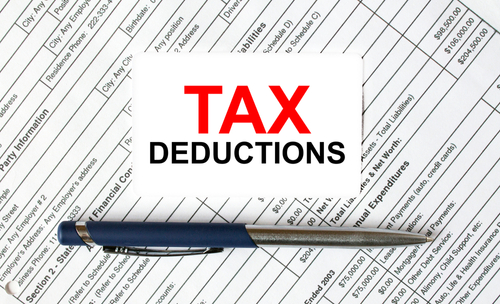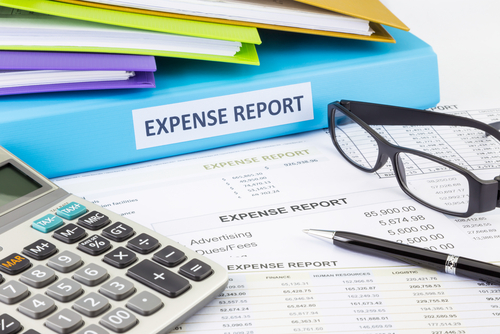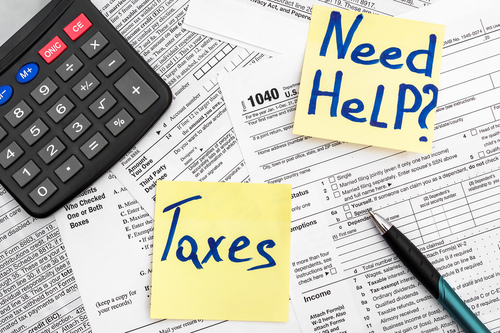Tax time is a particularly stressful time for most people, especially rental investors. After all, landlords need to determine what they can write off without making mistakes on their legal tax documents. Unfortunately, deductions sometimes get missed, excluding some significant tax benefits. To avoid missing out on tax benefits, read along as we go over common deductions that landlords miss.

What are Tax Deductions?
Deductions are items you can subtract from your taxable income to lower the amount of taxes you must pay. Otherwise known as tax incentives, deductions help rental business owners save a little bit of money at tax time.
Part of being a successful rental investor is knowing what tax deductions are available to you. Some of the most common deductions for landlords include:
- Mortgage Interest
- Depreciation
- Rental Insurance
Some investors may think the tax benefits end here, but that’s not true! There are tons of deductions available that most rental business owners forget to consider. Before we go over some of the common deductions that landlords miss, let’s discuss how to claim tax deductions in the first place.
How to Claim Tax Deductions
Claiming tax write-offs is a process that requires patience and accuracy. After all, nobody wants to get audited for a silly mistake on their taxes. So, what’s the first step in claiming tax deductions?
When you claim deductions for your rental business, you must fill out a Schedule E form. Additionally, you must have proof of each write-off you claim. Since this process can be tedious, a lot of people like to hire a tax professional to help with complete accuracy.
Once you’ve filled out a Schedule E form for your deductions, you can file Form 4562 to claim depreciation. Additionally, if you need to report a casualty or theft loss involving your rental property, you can file Form 4684 to do so.
Claiming the proper deductions and filing your taxes accurately is essential when owning a rental business. If you have questions or need help deciphering what you can deduct, it’s wise to get professional tax advice. A qualified tax specialist or tax advisor can help you get your maximum refund while avoiding an audit or other legal trouble.
Now that you know some of the most popular tax deductions and how to claim them, let’s go over some common deductions that landlords miss when filing taxes.
10 Common Tax Deductions That Landlords Miss
The last thing you want to do as a landlord is miss out on valuable tax benefits. So, before you file your Schedule E for this year, take a look at these standard tax deductions that landlords miss.

- Start-Up Costs
- Advertising Expenses
- Landlord-Paid Utilities
- Property Management Fees
- HOA Fees
- Employees
- Subscriptions and Memberships
- Travel and Parking Expenses
- Repairs and Maintenance
- Internet and Phone Plans
Start-Up Costs
If you are just starting out in the rental business industry, it’s possible that you could deduct some of the initial start-up costs. Some standard start-up costs may include accounting fees, training for employees, and office equipment.
Some start-up costs are considered capital expenditures, which cannot be deducted. However, investors may be entitled to deduct up to $5,000 of expenses if the total exceeds $50,000.
Advertising Expenses
Investors can write off any costs associated with advertising their rentals or rental business. Advertising costs may include physical signs, ads in a newspaper, digital ads, and posters. Additionally, landlords can also deduct the cost of building a new business website.
Landlord-Paid Utilities
In some rentals, the tenants are responsible for paying rent and utilities separately. However, sometimes landlords cover the price of utilities used by tenants. That said, these costs are fully deductible! Ordinary utility expenses that landlords deduct include:
- Heating
- Gas
- Cable and Internet
- Water
- Sewer
- Gas
- Trash Collection
Property Management Fees
Many landlords that own one or more rental properties hire a property management company to help with the day-to-day tasks. Since these are considered administrative expenses, investors can fully deduct them from their taxes.
That said, if you manage your own rental business, you can still deduct ordinary management costs like tenant screening, advertising, and seasonal maintenance.
HOA Fees
Many real estate owners belong to Homeowners Associations and must pay dues each month. However, since they are a necessary expense for rental investors, they can be deducted during tax time.
HOA dues typically depend on the property type are used to pay for certain amenities, repairs, and maintenance.
Employees
If you hire employees or contractors to perform work on your rental properties, you can deduce their wages, social security contributions, health insurance costs, and more.
Some examples of employees you may hire for your rental business include carpenters, roofers, property managers, maintenance workers, landscapers, and more.
Subscriptions and Memberships
This one is particularly missed a lot of times by investors. If you are a part of a membership or subscribe to certain services, you can deduct them at tax time. Some examples of subscriptions or memberships may include:
- Software, apps, or tools you use for your rental business
- Social media management tools
- Stock photos
- Cloud storage
- Professional organizations
- Productivity apps
Travel and Parking Expenses
A lot of landlords have to travel to meet tenants, show properties, or perform maintenance. So, if you find yourself traveling often, you can deduct certain expenses. Some examples include parking garage fees, tolls, gas expenses, vehicle repairs, upkeep, and more.
Additionally, if you have to fly or stay somewhere overnight, you may deduct airfare, hotel fees, food, and other activities associated with your rental business. However, it’s essential to report these expenses on your Schedule E form accurately.
Repairs and Maintenance
Some landlords don’t know that repairs and improvements are two different things. Additionally, they aren’t reported the same way on your taxes. Repairs and maintenance costs are deductible, while improvements are not tax-deductible.
If you don’t know the difference between the two, improvements add more value to the property, while repairs return things to their original condition. For example, some improvements may include adding an air conditioner or brand new appliances, while repairs may consist of fixing a broken pipe or patching a hole in the roof.
Internet and Phone Plans
If you have a phone and internet plan that you use for your rental business, you can deduct the percent you use for business purposes. However, it’s hard to know where to draw the line if you use your internet for both business and personal matters.
One easy way to calculate how much you should deduct is by determining how much internet you use strictly for business purposes. So, say you pay $100 for internet each month, and 80% of the internet you use is for your rental business, then you can deduct $80 per month.
Looking for the Greatest Return on Your Investment?
Every landlord seeks to get the greatest return on their investments. After all, that’s the goal of rental property investing! However, tax time can get tricky for new or inexperienced investors who aren’t sure what expenses to deduct. That said, you don’t want to make the mistake of missing out on tax deductions.
So, to avoid the standard deductions that landlords miss and receive the greatest return on your investment, consider hiring a professional property management company. A solid team of qualified professionals, like those at Bay Property Management Group, can help you smoothly run your rental business.
Our top-notch leasing team can help you with tenant screening, rent collection, eviction services, and more. Contact us today if you need property management services in Philadelphia, Maryland, Northern Virginia, or Washington D.C.


